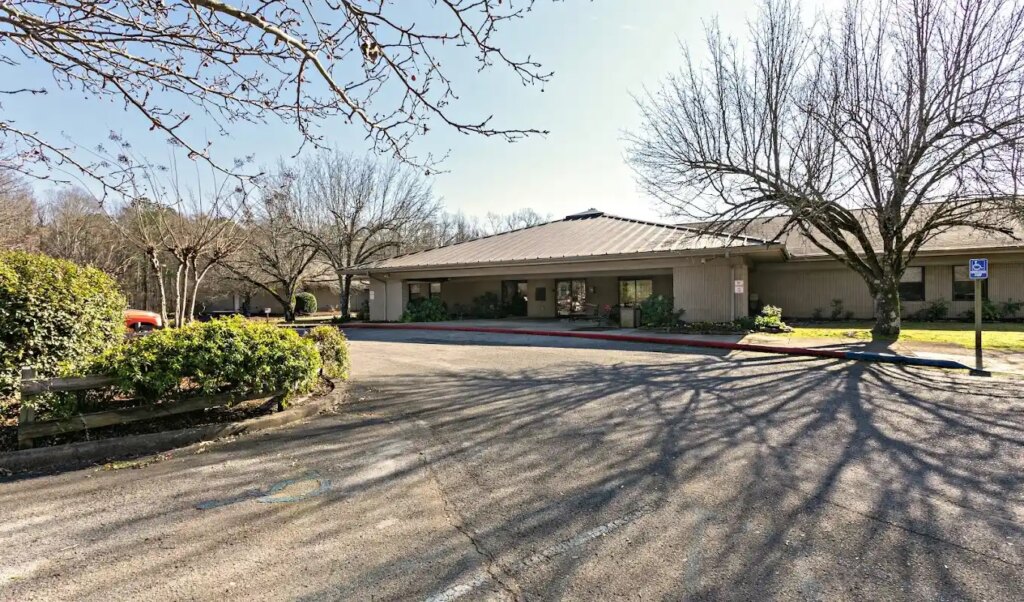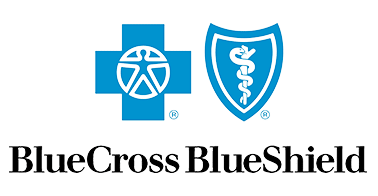






Blue Cross Blue Shield (BCBS) is one of the largest health insurance providers in the United States, offering coverage to millions of individuals and families. When it comes to mental health and addiction treatment, BCBS has made significant strides in recent years to provide comprehensive coverage to their members. This includes coverage for inpatient and outpatient services, medication-assisted treatment, and behavioral health counseling.
One of the key features of BCBS’s mental health and addiction treatment coverage is the inclusion of the Mental Health Parity and Addiction Equity Act. This federal law requires health insurance companies to provide coverage for mental health and substance abuse disorders on par with coverage for physical health conditions. BCBS also offers a variety of mental health and addiction resources to their members, such as telehealth services and support groups.
Overall, BCBS provides extensive coverage for mental health and addiction treatment, allowing individuals to receive the care they need to manage these conditions. While coverage may vary depending on the specific plan and location, BCBS’s commitment to mental health and addiction treatment is evident in their efforts to provide comprehensive and accessible coverage to their members.
The duration and extent of inpatient rehab benefits provided by health insurance plans can vary widely depending on the specific plan and provider. In general, the length of inpatient rehab coverage may be determined by medical necessity, as assessed by a healthcare provider. Insurance providers may also have limitations on the number of days or sessions covered, or may require prior authorization for coverage.
The extent of inpatient rehab benefits may also vary depending on the specific plan and provider. Some plans may offer coverage for a wide range of inpatient rehab services, such as medical detoxification, medication-assisted treatment, and behavioral therapies. Other plans may have more limited coverage, focusing on a specific type of inpatient rehab service or only covering a certain percentage of the cost.
When considering the duration and extent of inpatient rehab benefits provided by a health insurance plan, it is important to carefully review the specific terms and limitations of the plan. This may involve speaking with a representative from the insurance provider to understand the level of coverage provided and any potential costs or limitations. By understanding the duration and extent of inpatient rehab benefits offered by a health insurance plan, individuals and families can choose a plan that provides the comprehensive and accessible coverage needed to manage mental health and substance abuse conditions effectively.
When assessing BCBS outpatient rehabilitation coverage, it is important to consider the specific needs of individuals and families. BCBS offers coverage for outpatient rehabilitation services, which may include medication-assisted treatment, individual and group therapy, and other behavioral therapies.
The level of coverage for outpatient rehabilitation services may vary depending on the specific plan and location. For example, some BCBS plans may require prior authorization for outpatient rehabilitation services or may limit the number of sessions covered. Additionally, individuals may be responsible for meeting deductibles or paying out-of-pocket expenses.
When considering outpatient rehabilitation coverage, it is important to carefully review the specific terms and limitations of the plan. This may involve speaking with a representative from BCBS to understand the level of coverage provided and any potential costs or limitations. By carefully assessing the outpatient rehabilitation coverage offered by BCBS, individuals and families can choose a plan that provides the comprehensive and accessible coverage needed to manage mental health and substance abuse conditions effectively
BCBS offers coverage for a variety of outpatient rehabilitation services to support individuals and families managing mental health and substance abuse conditions. These services may include individual and group therapy, medication-assisted treatment, and other behavioral therapies.
Individual therapy involves working one-on-one with a licensed therapist to address specific mental health or substance abuse concerns. Group therapy may involve participation in a support group or therapy session with others who are experiencing similar challenges.
Medication-assisted treatment (MAT) involves the use of medications to manage symptoms of substance abuse and addiction. MAT may be combined with other forms of therapy to support individuals in their recovery.
Other types of outpatient rehabilitation services may include cognitive-behavioral therapy, dialectical behavior therapy, and family therapy.

Blue Cross Blue Shield (BCBS) is one of the largest health insurance providers in the United States and has made a commitment to providing comprehensive coverage for mental health and addiction treatment. BCBS recognizes the importance of mental health and substance abuse treatment and has made significant strides to ensure their members have access to quality care.
BCBS’s coverage for mental health and addiction treatment includes inpatient and outpatient services, medication-assisted treatment, and behavioral health counseling. They also offer resources to help individuals and families manage these conditions, such as telehealth services and support groups. BCBS has also worked to eliminate barriers to care, such as high copays or limitations on the number of therapy sessions, to ensure that individuals receive the treatment they need.
Overall, BCBS’s commitment to mental health and addiction treatment is evident in their efforts to provide comprehensive coverage and support to their members. Through their coverage and resources, BCBS is helping to reduce the stigma surrounding mental health and substance abuse and is improving access to care for those in need.
Blue Cross Blue Shield (BCBS) offers a range of insurance plans to individuals and families across the United States, each with varying levels of coverage for mental health and substance abuse services. These plans may differ in terms of deductibles, copays, and out-of-pocket expenses, as well as the types of services covered.
For example, some BCBS plans may offer more comprehensive coverage for inpatient or outpatient care, while others may have limitations on the number of therapy sessions or types of treatment covered. Additionally, the cost of premiums may vary depending on the plan, location, and level of coverage.
When exploring the range of BCBS insurance plans, it is important to consider the specific needs of individuals and families in terms of mental health and substance abuse treatment. This may include the severity of the condition, the type of treatment needed, and any existing or potential barriers to care. By carefully considering these factors, individuals and families can choose a plan that provides the coverage and support needed to manage these conditions effectively.

When it comes to choosing a health insurance plan, individuals and families may have the option of selecting an HMO or a PPO. HMOs, or Health Maintenance Organizations, typically offer more limited coverage but lower out-of-pocket costs. These plans require individuals to choose a primary care physician and may require a referral to see a specialist. Additionally, HMOs may have limited coverage for out-of-network providers.
In contrast, PPOs, or Preferred Provider Organizations, offer more flexibility and typically have a broader network of providers. These plans may have higher out-of-pocket costs but allow individuals to see specialists without a referral and may have more extensive coverage for out-of-network providers. PPOs may also provide more options for individuals who require care from specialists or providers outside of their network.
When comparing HMOs and PPOs, it is important to consider the specific needs of individuals and families. This may include the cost of premiums, the level of coverage needed for mental health and substance abuse services, and any existing relationships with healthcare providers. By carefully weighing the pros and cons of each plan option, individuals and families can choose a plan that provides the coverage and flexibility needed to manage their healthcare needs effectively.
Health insurance plans can be obtained through an employer-sponsored plan or through an individual plan. Employer-sponsored plans are typically offered as a benefit by employers to their employees and may provide more comprehensive coverage at a lower cost. These plans may have lower premiums, deductibles, and out-of-pocket expenses, as well as a larger network of providers. Additionally, employers may offer wellness programs or other resources to support the health and wellbeing of their employees.
In contrast, individual plans are purchased by individuals and families directly from an insurance company or through the health insurance marketplace. These plans may have higher premiums and deductibles, but may offer more flexibility in terms of coverage and provider options. Individuals and families may also qualify for subsidies or tax credits to help offset the cost of premiums and out-of-pocket expenses.
When comparing employer-sponsored and individual plans, it is important to consider the specific needs of individuals and families, as well as the cost and level of coverage needed for mental health and substance abuse services. By carefully weighing the pros and cons of each plan option, individuals and families can choose a plan that provides the coverage and support needed to manage their healthcare needs effectively.

Navigating in-network and out-of-network treatment options with Blue Cross Blue Shield can be a key factor in determining the level of coverage and out-of-pocket expenses for mental health and substance abuse treatment. In-network providers are those who have contracted with BCBS to provide services to their members at a negotiated rate. Out-of-network providers are those who have not contracted with BCBS and may charge higher rates for their services.
When seeking treatment, it is important to consider whether the provider is in-network or out-of-network. In-network providers may have lower out-of-pocket expenses and may be covered more comprehensively by BCBS. Out-of-network providers may have higher out-of-pocket expenses and may not be covered as comprehensively, resulting in higher costs for the individual.
If seeking treatment from an out-of-network provider, it is important to understand the specific coverage and out-of-pocket expenses that may be involved. BCBS may offer some coverage for out-of-network providers, but the level of coverage may be limited and may require prior authorization.
By carefully navigating in-network and out-of-network treatment options with BCBS, individuals and families can choose a treatment plan that provides the coverage and support needed to manage mental health and substance abuse conditions effectively, while minimizing out-of-pocket expenses.
There are several advantages to choosing in-network providers when seeking mental health and substance abuse treatment with Blue Cross Blue Shield. In-network providers have contracted with BCBS to provide services to their members at a negotiated rate, which can result in lower out-of-pocket expenses for individuals and families.
In addition, in-network providers have been reviewed and approved by BCBS for their quality of care, credentials, and experience. This can provide added reassurance that individuals are receiving high-quality, evidence-based care from experienced providers.
Finally, in-network providers may have better coordination of care with other healthcare providers, such as primary care physicians or specialists. This can help to ensure that individuals receive comprehensive, coordinated care for their mental health and substance abuse needs, reducing the likelihood of complications or the need for additional treatment.
Overall, choosing in-network providers when seeking mental health and substance abuse treatment with BCBS can provide several advantages, including lower out-of-pocket expenses, high-quality care, and coordinated care with other healthcare providers.
While in-network providers offer several advantages when seeking mental health and substance abuse treatment with BCBS, there may be instances when individuals need to seek treatment from out-of-network providers. When considering out-of-network treatment options, it is important to carefully consider the specific costs and coverage involved.
Out-of-network providers may charge higher rates for their services, resulting in higher out-of-pocket expenses for individuals and families. Additionally, BCBS may offer more limited coverage for out-of-network providers, which can result in higher costs for the individual.
However, there may be situations where out-of-network providers are necessary to meet the specific mental health or substance abuse treatment needs of an individual. In these cases, it is important to carefully review the specific terms and limitations of the BCBS plan, including any requirements for prior authorization or referrals, to ensure that the individual receives the coverage and support needed to manage their condition effectively.
Overall, while in-network providers are generally preferred when seeking mental health and substance abuse treatment with BCBS, there may be instances where out-of-network providers are necessary. By carefully considering the specific costs and coverage involved, individuals and families can make informed decisions about their treatment options and choose a plan that provides the comprehensive and accessible coverage needed to manage their mental health and substance abuse conditions effectively.

Determining your BCBS insurance coverage for rehab services is an important step in managing mental health and substance abuse conditions effectively. To determine your coverage, it is important to review the specific terms and limitations of your BCBS plan.
One important consideration when determining your coverage is the level of care needed for your mental health or substance abuse condition. This may involve an assessment by a healthcare provider to determine the need for inpatient or outpatient rehabilitation services.
Another important consideration is the specific coverage and out-of-pocket expenses involved for in-network and out-of-network providers. In-network providers may have lower out-of-pocket expenses and may be covered more comprehensively by BCBS. Out-of-network providers may have higher out-of-pocket expenses and may not be covered as comprehensively, resulting in higher costs for the individual.
By carefully determining your BCBS insurance coverage for rehab services, individuals and families can choose a treatment plan that provides the coverage and support needed to manage mental health and substance abuse conditions effectively, while minimizing out-of-pocket expenses. This may involve working with a healthcare provider and a representative from BCBS to review the specific terms and limitations of the plan and to understand the level of coverage provided for mental health and substance abuse treatment.
Reviewing your policy and benefits is an important step in understanding your BCBS insurance coverage for mental health and substance abuse treatment. To review your policy and benefits, it is important to carefully review the specific terms and limitations of your BCBS plan.
One important consideration when reviewing your policy and benefits is the level of care needed for your mental health or substance abuse condition. This may involve an assessment by a healthcare provider to determine the need for inpatient or outpatient rehabilitation services.
Another important consideration is the specific coverage and out-of-pocket expenses involved for in-network and out-of-network providers. In-network providers may have lower out-of-pocket expenses and may be covered more comprehensively by BCBS. Out-of-network providers may have higher out-of-pocket expenses and may not be covered as comprehensively, resulting in higher costs for the individual.
By carefully reviewing your policy and benefits, individuals and families can make informed decisions about their treatment options and choose a plan that provides the comprehensive and accessible coverage needed to manage mental health and substance abuse conditions effectively. This may involve working with a healthcare provider and a representative from BCBS to understand the level of coverage provided for mental health and substance abuse treatment and to advocate for the level of care needed to support recovery.
Verifying rehab coverage with BCBS involves several steps to ensure that individuals and families receive the comprehensive and accessible coverage needed to manage mental health and substance abuse conditions effectively.
One important step is to review the specific terms and limitations of the BCBS plan, including any requirements for prior authorization, in-network providers, and out-of-pocket expenses. This may involve speaking with a representative from BCBS to understand the level of coverage provided and any potential costs or limitations.
Another important step is to work with a healthcare provider to determine the level of care needed for the mental health or substance abuse condition. This may involve an assessment to determine the need for inpatient or outpatient rehabilitation services and to determine the specific type of services needed to support recovery.
Finally, it may be necessary to advocate for the level of care needed to support recovery, including working with BCBS to appeal denials or limitations on coverage. By following these steps, individuals and families can verify rehab coverage with BCBS and choose a treatment plan that provides the comprehensive and accessible coverage needed to manage mental health and substance abuse conditions effectively.